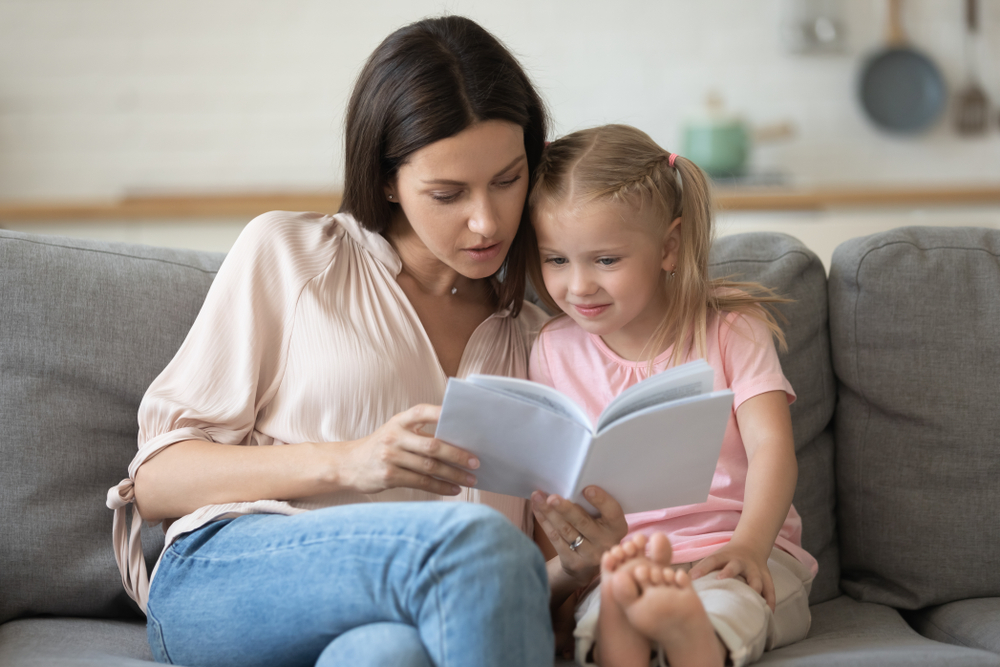
The coronavirus pandemic has temporarily shut down schools for more than 30 million children in the United States. Even though most schools are offering online classes, many parents are stepping up to provide additional instruction to their children.
If you’ve taken on the role of teacher as a result of the coronavirus pandemic, you may want to consider using homeschool reading programs to help your child become a better reader. Here’s a breakdown of what reading skills you should focus on for children at every grade level:
Reading Skills For Kindergarteners
Most kindergarteners are just beginning to learn how to read. In fact, many schools will not even introduce reading to children until the first grade.
If you are homeschooling your kindergartener, focus on introducing texts that are filled with colorful and interesting images. Because children at this age don’t have strong reading skills, the images can help them understand what’s going on in the story.
At this age, kids should only be introduced to books with one or two sentences of text per page and three to six words per sentence.
Build your child’s vocabulary by teaching them rhyming words such as “day,” “hay,” “may,” and “pay.”
Try this sentence: The cat ran to the mat.
Reading Skills For First Graders
If your child is in first grade, introduce them to slightly more advanced stories with animal fantasy or realistic fictional themes. These books should still contain images, but they should also have slightly more complex sentences and more than two sentences per page.
Expand your first grader’s vocabulary by introducing words with blended sounds. For example, help your child understand how the letters T and R blend together to form words such as “tree” or “true.”
At this age, children should be able to read between 40 to 45 words per minute.
Try this sentence: Sun and rain help the seeds grow.
Reading Skills For Second Graders
Second grade is the perfect time to start reading books with dialogue . The sentence structure used in these books should also become more complex. At this age, children should start to understand how commas, quotes, question marks, and ellipses are used within text.
Focus on expanding your second grader’s vocabulary of difficult words that are used frequently such as:
- Beach
- Amaze
- Stormy
- March
- Daze
Your second grader’s speed should improve as they become a stronger reader. Ideally, children at this age should read between 55 to 90 words per minute.
Try this sentence: I stand on the corner of our street with my friends and we wait for the bus.

Reading Skills For Third Graders
Third graders can start to read a wide variety of texts, including age-appropriate retellings of traditional tales, simple plays, and informational books. Look for books that contain both short and long sentences with more than 10 words.
At this age, children should also start to tackle sounding out complex three-syllable words such as:
- Example
- Flexible
- Furious
- Multiply
- Volunteer
Your third grader should aim to read between 75 to 110 words per minute.
Try this sentence: Kelly played the trumpet, Jack played the drums, and Max played the horn.
Reading Skills For Fourth Graders
Just like third graders, fourth graders can read a wide variety of texts as well. But at this age, the text should be more complex. Look for books that are filled with prepositional phrases, adjectives, and character dialogue.
Now is a good time to introduce your child to compound words such as:
- Grandmother
- Fireworks
- Basketball
- Grasshopper
Learning how two words can come together to form a new word will help your fourth grader broaden their vocabulary and become better readers.
Try this sentence: Many people think that in-line skates are easier to move around on than skates with four wheels.
Reading Skills For Fifth Graders
In fifth grade, children are ready to start reading narrative stories with long, complex sentences. These books should contain text with a variety of elements, including compound sentences, questions, dashes, hyphens, and commas.
Your fifth grader should focus on adding words with unique letter-sound relationships to their vocabulary. Some words to start with include:
- Unfamiliar
- Persuade
- Anxious
- Navigate
- Accomplish
Mastering these words will help your child develop the reading skills they need to move onto more advanced texts.
Try this sentence: Occasionally, ships are found abandoned with no sign of life. Others sink after catastrophic accidents and debris from those ships later floats to the surface.
Help Your Child Become A Stronger Reader With Readability
Parents should take advantage of every resource at their disposal when homeschooling children during the coronavirus pandemic. If you want your child to become a better reader, the best tool to use is the Readability app. This app uses artificial intelligence and speech recognition technology to serve as your child’s digital reading tutor. Using this fully interactive app on a regular basis can help your child drastically improve their reading skills in as little as 90 days.
Download the app on your smartphone or tablet today to begin your free 7-day trial. By the time the coronavirus pandemic has been resolved, your child will be a stronger, more confident reader!

 Español
Español